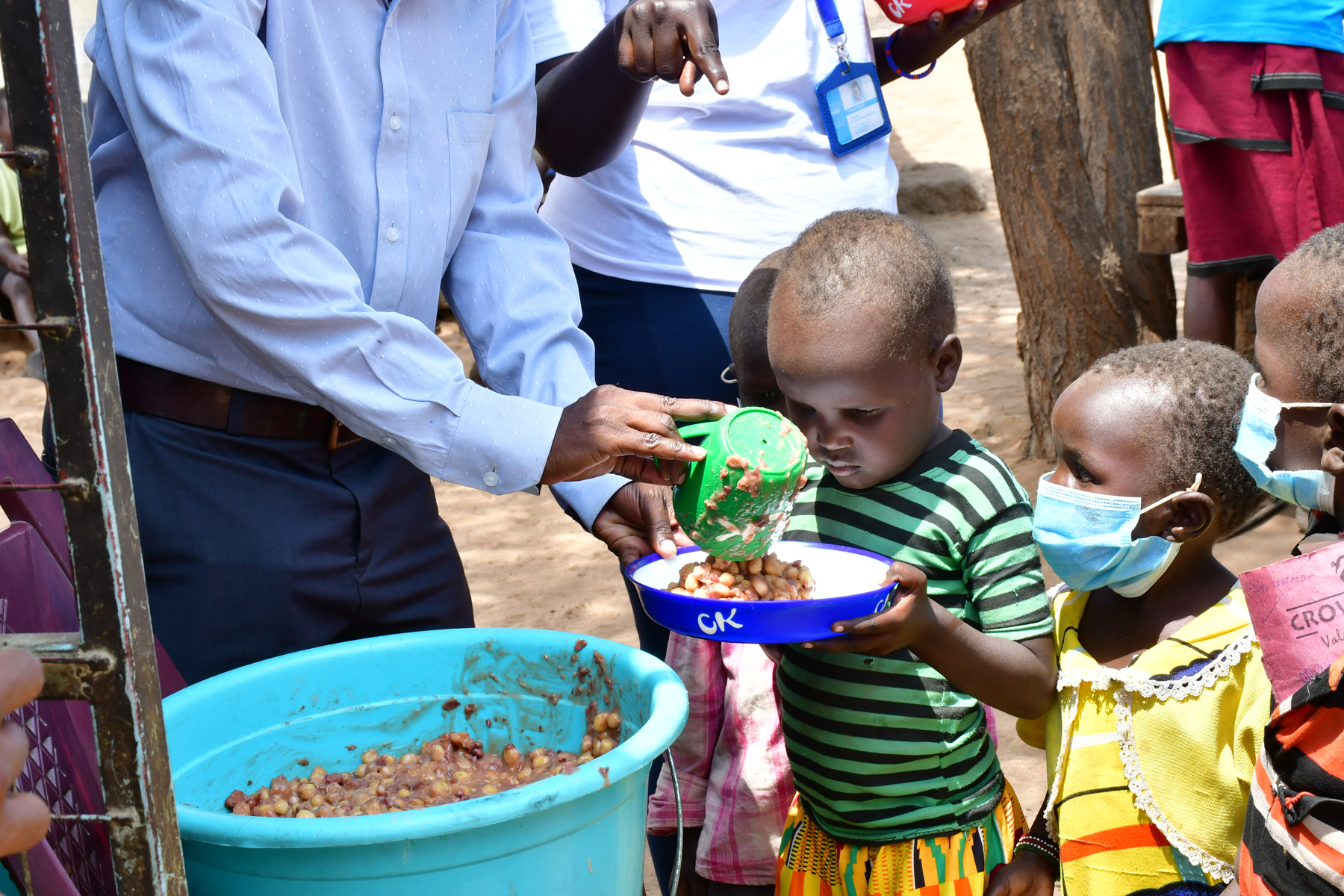The Struggle of a Lifetime
The war in Ukraine is tearing lives and livelihoods apart in villages, towns and cities across the country, with little sign of relief for its beleaguered people.
Why is a war in Europe impacting the world?
Russia and Ukraine are among the top five exporters of wheat – together they supply a quarter of all the wheat produced globally – and both are key exporters of cooking oils to the rest of the world. This source of basic goods is heavily relied upon by people in the Middle East and North Africa, some of them in countries where Mary’s Meals is already providing daily school meals to children who may otherwise not eat.
In Lebanon, large numbers of people have faced conflict in their own country. It’s the nation with the highest per capita refugee population in the world - 25% of inhabitants - according to the World Food Programme.
They are facing a prolonged and exhausting struggle in the face of a dire economic crisis that has seen food prices soar and availability shrink, even before the onset of war in Ukraine. Hunger is a very tangible concern for the majority of Lebanese families and for the 1.3 million Syrian refugees living there, who are estimated to be moderately food insecure.
The impact war in Ukraine has on an already fragile economy
As a nation that imports the vast majority of the food it consumes, Lebanon is especially vulnerable to external factors affecting the prices and availability of goods. The war in Ukraine has meant that exports of key products have slowed to a halt, and countries like Lebanon have few available alternatives to ensure their people don’t go hungry.
Mary’s Meals’ programme in Lebanon is delivered in partnership with relief organisation Dorcas, which has expert staff on the ground, responding to the constantly-evolving situation. Dorcas Project Officer Jean Geagea tells us about the challenge now facing them, as they redouble their efforts to maintain in-school feeding for 1400 vulnerable children around the capital Beirut.
“Families in Lebanon are facing the struggle of a lifetime,” says Jean Geagea. “Salaries are in freefall and the Lebanese pound has lost 90% of its value. For comparison, that means that our country’s minimum wage is now equivalent to around $28 USD per month.
“With our country facing hyperinflation, people are being pushed deeper into poverty, with the poorest families being hardest hit. Now, with the war in Ukraine, we are seeing prices rising even more, making it very difficult for people to pay for the basics.”
Government subsidies on food, fuel and medication have been significantly cut in Lebanon. There is only one or two hours’ supply of electricity per day and the cost of a generator is so high, that families are regularly left in darkness. Without consistent electricity, refrigeration is hit and miss. This means people are faced with an impossible choice between eating food that may not be fresh or letting it go to waste while they go hungry.
Mary's Meals' work in Lebanon
Mary’s Meals lunches in Lebanon consist of sandwiches or wraps and a piece of fruit or vegetables. Cold storage is vital to ensure the food we are serving to these vulnerable children is safe. Our partner Dorcas is working hard to find solutions to the challenges posed by poor refrigeration.
Jean Geagea from Dorcas says: “Limited time for refrigerators in a day adds difficulty to preparing safe and healthy meals for children. “The team is now receiving the food on a daily basis in all kitchens, to make sure we are serving fresh food for the children and to avoid any food contamination because of electricity and generator shortages. This is also helpful in avoiding any food waste because of unexpected school closures due to lack of amenities.”
Lebanon’s historically fragile economy has been dealt a series of sucker punches, previously by Covid-19 lockdowns and now by the effects of the war in Ukraine.
Economies aren’t just about money - they’re about people. When a currency loses value and we see hyperinflation like that in Lebanon, it is always the people who suffer.
Developing countries are the unwitting casualties of the war in Ukraine. Many of these nations were already suffering from soaring living costs and growing hunger levels due to extreme climatic events or conflicts in their own countries.
Head of the UN World Food Programme David Beasley has said that, if the blocking of exports from Ukraine persists, we will see “famines and destabilisation of nations as well as mass migration by necessity”.
He added: “This is not just about Ukraine. This is about the poorest of the poor around the world who are on the brink of starvation as we speak.”
The people of Ukraine are facing unimaginable volatility and devastation in the homeland they love. How long this war will continue is unknown. How far the impact will reach is already becoming clear for some of the most vulnerable people in the poorest communities, who have come to rely on imports from Russia and Ukraine to feed their people.
Mary’s Meals must honour our commitment and do all we can to maintain the school feeding programme that has become a lifeline for millions of the most at-risk children in 20 countries across the world.
Please give what you can to combat global hunger and help us show the children that, in these most difficult times, they have not been forgotten.
Find out more about our Global Hunger Crisis Appeal and learn how you can help today.

Please give what you can to help us show these children that their plight is not being forgotten.
